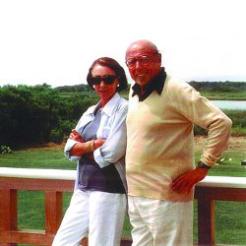Oxford University is to open a new scholarship in the humanities after receiving a donation that will amount to £26m, the largest gift specifically for the humanities in the university's 900-year history.
The donation was made by Romanian-born Mica Ertegun, the widow of Atlantic Records founder Ahmet Ertegun, who is herself a world-renowned interior designer.
Speaking of her donation, Ertegun said: "In these times, when there is so much strife in the world, I believe it is tremendously important to support those things that endure across time, that bind people together from every culture, and that enrich the capacity of human beings to understnad one another and make the world a more humane place."
The fund will allow for the establishment and ongoing support of the Mica and Ahmet Ertegul Graduate Scholarship Programme in the Humanities.
It will fund an initial 15 scholarships a year and eventually, in perpetuity, 35 graduates will be awarded annually. Scholarships will be awarded on merit after a highly competitive process undertaken by a dedicated committee.
The fund will also support the ongoing salary of a full-time senior-scholar-in-residence to act as a mentor to the students, and a programme of lectures, seminars, concerts and other relevant activities. The scholars will receive exclusive use of the Mica and Ahmet Ertegun House for the Study of the Humanities, a five-storey Georgian building in Oxford's city centre.
Andrew Hamilton, Oxford's vice-chancellor said: "This is a significant moment for the study of humanities and the largest donation specifically for the humanities in the 900-year history of Oxford. At a time when, in the UK, government support for the humanities is under intense pressure, vision and generosity like this is going to be what saves the field for future generations."
The first scholars will begin in September 2012.









